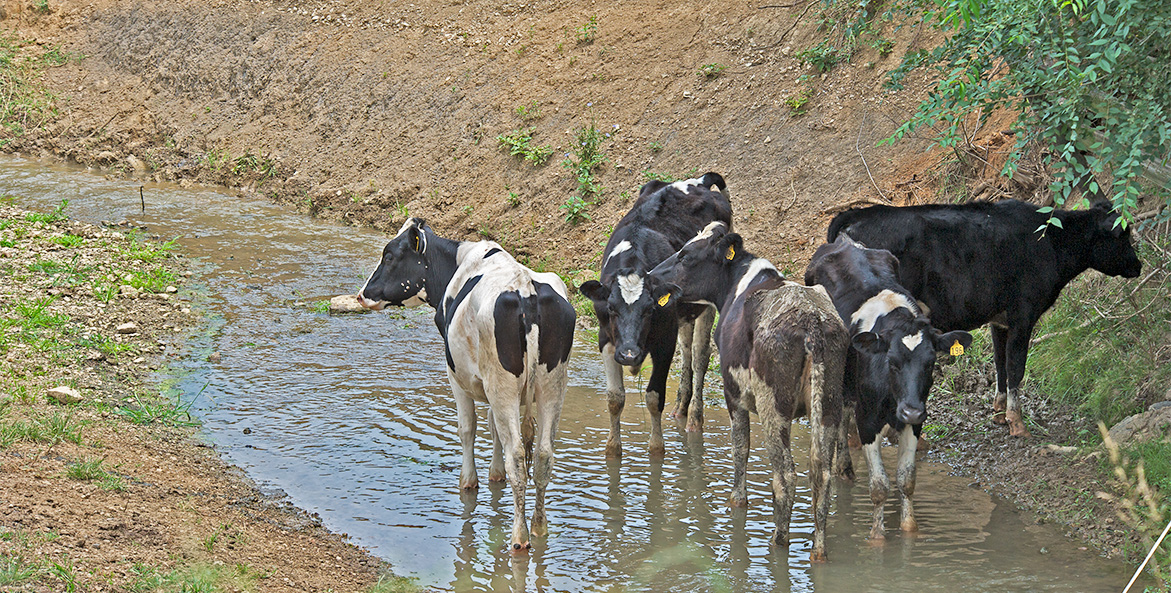Funding will soon be flowing from Pennsylvania’s new cost-share Agricultural Conservation Assistance Program (ACAP) to help more farmers put pollution-reduction measures on the ground, creating optimism and momentum for cleaner rivers and streams in the Keystone State.
In a historic move last year, the Pennsylvania General Assembly created the $220 million Clean Streams Fund to address the top sources of stream pollution in the state and dedicated $154 million of it to ACAP over three years. More than 90 percent of the remaining pollution reductions needed to clean streams in the Commonwealth’s portion of the Chesapeake Bay watershed must come from agriculture.
Administered by the State Conservation Commission, ACAP will provide county conservation districts additional resources to help farmers design and pay the costs of implementing conservation practices. Previously, a state cost-share program did not exist in Pennsylvania.
In participating counties, farmers have plans in place, and funding is expected to begin making its way to them by mid-March.
While all conservation practices are eligible for ACAP funding, CBF would like to see an emphasis on practices that plant more trees and prevent livestock from standing in streams.
Creating Natural Filters
Trees are one of the most cost-effective tools for cleaning and protecting waterways by filtering and absorbing polluted runoff, stabilizing streambanks, and improving soil quality.
Fallen tree branches also provide critical habitat for critters like brook trout and Pennsylvania’s state amphibian, the Eastern hellbender. Degrading leaves are a vital food source for many clean water bugs in our rivers and streams.
The Commonwealth has a mammoth goal for planting forest buffers—95,000 acres to be exact. Currently, its only planted a fraction of that. However, CBF is especially proud of progress made by the Keystone 10 Million Trees Partnership, which planted its 5-millionth tree in October. In 2023, the partnership plans to directly fund and plant at least 518,000 more trees for Pennsylvania.
Protecting Livestock and Stream Health
To take efforts in Pennsylvania up a notch, and to protect the health of livestock and everything downstream, CBF is placing greater emphasis on getting livestock out of local waters.
Direct deposits of manure by farm animals standing in streams seriously degrade water quality and threaten the health of animals and people. Livestock in streams can introduce pathogens and hormone-disturbing compounds to surface water, the source of drinking water for most Pennsylvanians.
Hoof traffic into and out of streams also exacerbates streambank erosion.
Farmers can benefit from streambank fencing, too, as herd health and milk and beef production are known to improve when livestock has clean water to drink.
Fencing livestock out of streams is mentioned as a tool to help with soil health and nutrient reductions in Pennsylvania’s plan to clean up local streams and the Chesapeake Bay downstream (officially called its Phase III Watershed Implementation Plan). Yet, currently, Section 702 of Pennsylvania’s Clean Streams Law prohibits Commonwealth agencies or political subdivisions from requiring fencing for the purpose of keeping farm livestock out of the streams, a provision which impedes progress in water quality improvement.
In previous legislative sessions, proposed bills failed to gain traction that would give local governments the ability to require that fences be placed between livestock and streams, while allowing for points to cross.
For the session that just began, Rep. P. Michael Sturla, a Democrat representing Lancaster and a member of the Chesapeake Bay Commission, wrote a memorandum suggesting that a similar streambank fencing bill will be introduced again.
“As legislators, we have the responsibility to ensure our local governments have the tools they need to protect our most important industry and vital natural resource,” Rep. Sturla said in his memorandum.
New Opportunities
Landmark investments from the new ACAP are significant down-payments to protect and improve our rivers and streams, health and quality of life, and the economic viability of the family farm.
As the fiscal year 2023-24 budget begins to take shape, the new legislative session and new administration of Governor Josh Shapiro have an opportunity to take the Commonwealth’s clean water commitment to the next level.




